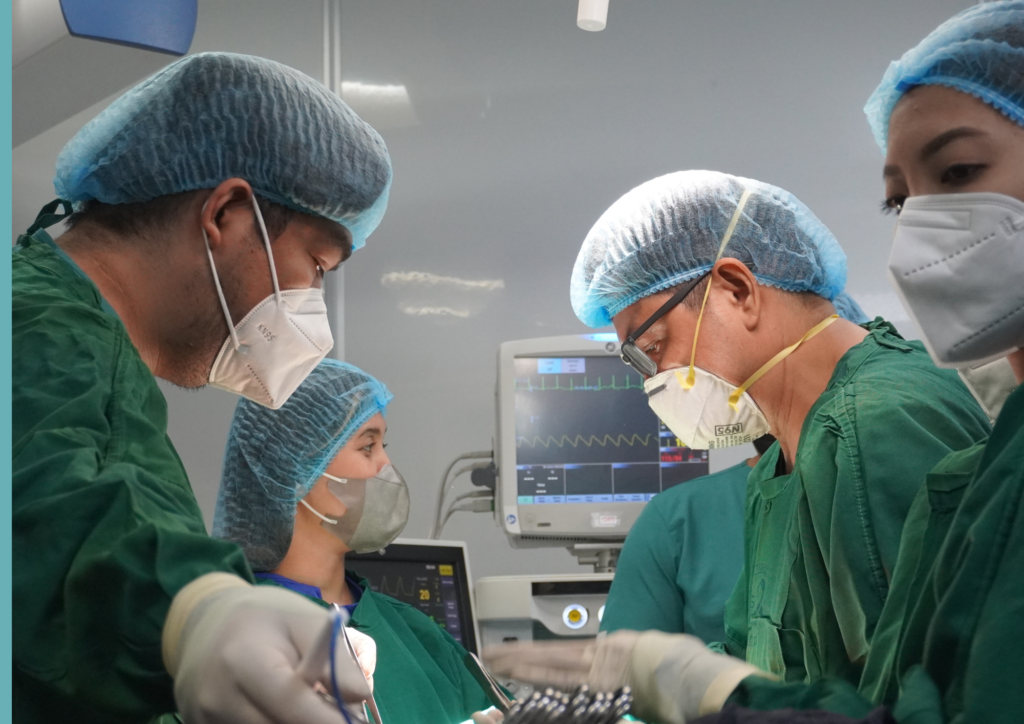Eyesight, a gift often overlook is no doubt one of the most important sense with which humans are blessed with. Reading a book, watching a movie or navigating through your environment all these tasks need eyesight. Eyes act like a window through which humans see the world. Eyes are one of the most delicate organ in the body and a small change of millimeters can blur the vision affecting the normal day to day life of a person. Fortunately there are ways to improve your eyesight by adopting right practices and lifestyle choices. In this blog we will we get to know about effective methods for improving eyesight such as natural remedies, lifestyle adjustment and scientific treatment options.
Understanding Eyesight and Eye Health:
Before moving on to how to improve eyesight we need to understand the basics of eye health. Eye is also one of the most complex organ which is in direct connection with the brain through optic nerves to process visual information. Eye consists of different structures.
Light enters the eye through cornea that is a transparent in nature then it passes through the pupil which is a small opening in the middle of the eye then passes through the lens then the vitreous and aqueous humor and at the last it focuses on the retina. Retina is a sensory layer and the only extension of brain that could be seen with the help of an ophthalmoscope. Rods and cones are sensory cells that sends signals to the brain which are interpreted as images.
Eye is also one of the most complex organ which is in direct connection with the brain through optic nerves to process visual information. Eye consists of different structures. Light enters the eye through cornea that is a transparent in nature then it passes through the pupil which is a small opening in the middle of the eye then passes through the lens then the vitreous and aqueous humor and at the last it focuses on the retina. Retina is a sensory layer and the only extension of brain that could be seen with the help of an ophthalmoscope. Rods and cones are sensory cells that sends signals to the brain which are interpreted as images.
There are many factors that can affect the normal eyesight leading to problems like nearsightedness (myopia), farsightedness (hyperopia), astigmatism, presbyopia, age related macular degeneration and cataracts. Some eyesight problems can be corrected only using glasses, some requires surgical interventions and some cannot be treated completely so it is important to decrease its deterioration.
Natural Ways to Improve Eyesight:
Most of the eyesight problems need professional treatment however there are natural methods that can help improve or maintain normal eyesight. Incorporating these natural methods into your day to day lifestyle can help you retain your eyesight for long.
Eye Exercise for Better Focus:
These are exercises that strengthen the muscles supporting the eye in the orbit. Performing these exercises can significantly reduce strain and improve focus. These exercises are particularly helpful for individual who spend most of their time sitting next to screens such as monitors, tablets and mobile phones. Some effective exercises that can improve one eyesight are as follow.
The 20-20-20 Rule:
This rule states that we should take a 20 second break every 20 minutes and look at something 20 feet away. This relaxes the eye and reduces strain on muscles.
Palming:
In palming exercise one rubs their hands together. This generates heat, now place the palm of their hands on eyes without exerting pressure. Breathe deeply and relax for a minute or two. This exercise relive fatigue and refresh the vision.
Focus Shifting:
In this exercise hold your finger at a distance of 10 inches from your face. Focus your eyes on that finger for few seconds then shift your focus to an object at a distance for 10 to 15 seconds. Repeat this process several times a day to have a sharp and healthy eyesight.
Eye Rolling:
Rotate both your eyes slowly in a circular motion, both in clockwise and counterclockwise direction. This exercise reduces tension in the muscles of eye. And improves blood flow as well.
Maintaining a Balance Diet:
A diet rich in vitamins, minerals and antioxidants is crucial for protecting your eyes from damage and reduce the risk for vision problems. Some essential nutrients are:
Vitamin A:
Vitamin A is the most important vitamin for good vision. It plays a crucial role in low light conditions. Carrots, sweet potatoes, spinach and kale are good sources of vitamin A.
Lutein and Zeaxanthin:
Both of them are antioxidants that plays an important role in protecting retina from damage caused by harmful radicals. They decrease the risk of macular degeneration and cataracts. They are present abundantly in kale, spinach, egg yolks and corn.
Vitamin C:
Vitamin C has antioxidants properties. It protects the eye from oxidative stress and promotes the health of blood vessels in eyes. Vitamin C sources include citrus fruits, strawberries, bell peppers and broccoli.
Omega 3 Fatty Acids:
Omega 3 fats that good for your health. They play a role in maintaining the health of retina and reduces the risk of dryness in the eyes. Salmon, mackerel and sardines are excellent sources of omega 3 fatty acids. Zinc: Zing is a mineral important for maintaining the health of the retina and preventing eye problems related to age. Oysters, red meat, poultry, chickpeas and walnuts are good sources of zinc.

Drinking Ample Amount of Water:
Proper hydration is very important for maintaining healthy eyes. If the body gets dehydrated it will lead to dehydration of the eyes as well. Dryness of eyes results from dehydration which causes discomfort and strain. In order to live a healthy life one should drink 8 glasses of water daily. Hydrated foods like cucumber, watermelon and oranges also contribute to the water content of body.
Adequate Sleep:
Sleep is essential for the overall health of a person including eye health. In sleep the eyes get sufficient time to rest and recover from the strain. Insufficient sleep can lead to dry eyes, irritation of the eyes and increased risk for other eye diseases. One should aim for at least 7 hours of sleep every night. It is difficult for some people to fall asleep in bright and noisy environment so make sure to have a sleep zone that is dark, quiet and comfortable.
When to seek professional help?
While many natural methods can help you have a healthy vision, there are some diseases of the eye that cannot be treated without professional healthcare. It is important to check your eyes for any changes on regular basis. The doctor who deals with diseases related to eyes is called an ophthalmologist. He looks for early changes in the eyes that could lead to diseases like glaucoma, cataracts and macular degeneration later on. Detection of these signs allows the doctor to treat the patient promptly without dealing with drastic complications. One should consider to visit an ophthalmologist if he or she faces any one of the following problems.
Blurred Vision:
If you ever notice changes in your vision such as the image produced in your brain is blurred or double it is important to seek medical help.
Eye Strain:
If one adopts a healthy lifestyle and performs eye exercises strain will not be an issue however if you are experiencing eye strain more frequently and for longer periods of time seeking professional help is very important.
Increased Sensitivity to Light:
Light is very well tolerated by human eyes but if you find yourself annoyed by light it could be an indication for underlying eye problems.
Changes in Night Vision:
Some people complain of blurred vision when the amount of light drops such as in a dark room or in evening. This is known as Night Blindness and is usually do to the deficiency of vitamin A.
Family History of Eye Conditions:
Anyone with history of family eye disease should visit an ophthalmologist on regular basis for early detection and prompt treatment. Diseases like glaucoma and macular degeneration run in families.
Many diseases of eye are progressive in nature. They take time to develop, in order to preserve your vision it is important to detect minute changes occurring in the eye as soon as possible.
Modern Treatments for Improving Eyesight:
Natural remedies and a healthy lifestyle ensures good eyesight but problems like reflective errors, glaucoma and cataracts need modern treatments. Correction of refractive errors (nearsightedness and far sightedness) need eyewear like glasses or contact lenses. An even more modern treatment available at the movement for refractive errors is LASIK Surgery.
LASIK Surgery:
LASIK stands for Laser Assisted In Situ Keratomileusis. A very popular and commonly used procedure to correct reflective errors by reshaping the cornea with the help of a laser.
Cataracts Surgery:
Cataracts is a disease which is characterized by clouding of the lens. Lens by nature is transparent. In cataracts surgery the cloudy lens is replaced with an artificial intraocular lens (IOL). They can either be placed in the anterior of posterior chamber. Posterior IOL are preferred more than anterior ones due to little complications.

Conclusion:
Eyesight is no doubt one of the most important sense for human beings. Maintaining a good eyesight can be achieved with the help of natural remedies, healthy lifestyle and professional care. By doing eye exercise regularly, keeping the body hydrated, having 8 hours of peaceful sleep and avoiding UV light can help preserve the normal eyesight and prevent morbidities. Regular eye check up by an ophthalmologist is necessary for early diagnosis of many disease and their prompt treatment. However natural remedies and modern treatment can make a significant difference in the way you see the world. If you liked this blog and want to know more about the human body go to my website Medrizz.com.
FAQs:
Can you actually improve your eyesight naturally?
Yes, while not all vision problems can be reversed naturally, you can maintain or slightly improve eyesight by adopting healthy habits such as eye exercises, a nutrient-rich diet, proper hydration, and reducing screen strain.
What is the 20-20-20 rule and how does it help?
The 20-20-20 rule is a simple method to reduce digital eye strain. Every 20 minutes, look at something 20 feet away for 20 seconds. It relaxes eye muscles and prevents fatigue from prolonged screen use.
Which foods are best for eye health?
Foods rich in Vitamin A, Lutein, Zeaxanthin, Vitamin C, Omega-3 fatty acids, and Zinc are excellent for eye health. Examples include carrots, spinach, eggs, citrus fruits, fish like salmon, and nuts.
Can sleep affect eyesight?
Absolutely. Getting 7–8 hours of quality sleep gives your eyes time to repair and rest. Lack of sleep can lead to dry eyes, blurry vision, and eye twitching.
What is LASIK surgery, and who should consider it?
LASIK is a laser surgery that reshapes the cornea to correct refractive errors like myopia and hyperopia. It’s best for adults with stable vision who want to reduce dependence on glasses or contact lenses.

